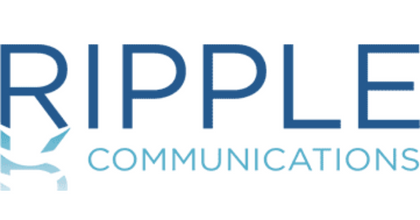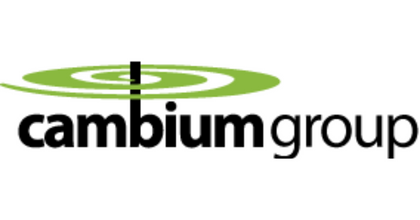
Top B2B Web Portal Development Companies
Welcome to our curated compilation of the foremost B2B Web Portal Development Companies, meticulously assembled to aid you in selecting the ideal partner for your business needs. In today’s interconnected world, a robust B2B web portal is essential for facilitating seamless transactions and fostering strong relationships with clients and partners. Our carefully vetted list showcases companies recognized for their expertise in crafting tailored solutions that streamline operations and enhance collaboration. With a focus on user reviews, we empower you to make informed decisions, ensuring that you partner with a company renowned for excellence in B2B portal development. Simplify your search and embark on the path to digital success with confidence.
List of the Best B2B Web Portal Development Companies

-
Employees: 51 to 200
-
Min. Project amount: $ 25000
-
Country: USA

Platzer Media
-
Employees: 0 to 10
-
Min. Project amount: $ 25000
-
Country: USA

Oxbow Creative
-
Employees: 2 to 10
-
Min. Project amount: $ 25000
-
Country: USA
-
Employees: 0 to 1
-
Min. Project amount: $ 25000
-
Country: USA

Ripple Communications
-
Employees: 2 to 10
-
Min. Project amount: $ 25000
-
Country: USA

LK Design
-
Employees: 0-1
-
Min. Project amount: $ 25000
-
Country: USA

GB Web Creations
-
Employees: 1 to 25
-
Min. Project amount: $ 25000
-
Country: USA

Cambium Group
-
Employees: 51 to 200
-
Min. Project amount: $ 25000
-
Country: UK
-
Employees: 2 to 10
-
Min. Project amount: $ 25000
-
Country: USA

44 Degrees North
-
Employees: 2 to 10
-
Min. Project amount: $ 25000
-
Country: USA
** Buyer's Guide **
- 1. How can I determine if a B2B web portal development company is the right fit for my project?
- 2. How can I ensure that a B2B web portal development company understands my industry-specific needs?
- 3. What level of scalability should I expect from a top B2B web portal development company?
- 4. What kind of ongoing support and maintenance services can I expect after the B2B web portal is launched?
1.How can I determine if a B2B web portal development company is the right fit for my project?
Essential features of a B2B web portal include user authentication and authorization systems, role-based access controls, secure data exchange capabilities, product catalog management, order processing and management tools, as well as robust reporting and analytics functionalities to track transactions and performance.
A well-designed B2B web portal streamlines communication, simplifies transactions, and fosters stronger relationships between businesses.
Choosing the right B2B web portal development company requires careful evaluation to ensure they possess the expertise and understanding to deliver a solution that aligns with your specific business needs. Here are some key factors to delve deeper into:
Industry Experience and Understanding:
B2B Domain Expertise: Look for a company with experience developing B2B web portals, particularly within your industry or niche. Understanding the specific challenges and workflows of your industry is crucial for creating a portal that meets your unique requirements.
Client Portfolio Review: Carefully examine their portfolio to see examples of past B2B web portal projects. Focus on projects similar to your vision in terms of industry, functionalities, and scale. This gives you insights into their B2B development capabilities.
Understanding Your B2B Requirements:
Clear Needs Analysis: Choose a company that takes the time to understand your B2B requirements thoroughly. This includes the target audience (types of businesses you interact with), desired functionalities (order processing, secure document exchange, etc.), and any integration needs with existing systems.
Customization Capabilities: A B2B web portal is not a one-size-fits-all solution. The development company should possess the flexibility and expertise to customize the portal to your specific business processes, workflows, and branding guidelines.
Technical Expertise and Security:
Technology Stack for B2B Needs: B2B portals often require robust security measures and integrations with enterprise systems. Ensure the company has experience with technologies suitable for B2B development, such as secure data encryption, API integrations, and enterprise system connectivity.
Security Certifications and Practices: Data security is paramount in B2B transactions. Look for a company with relevant security certifications and a proven track record of implementing robust security measures to protect sensitive business information.
Communication and Project Management:
Clear and Transparent Communication: Effective communication is crucial throughout the development process. The company should actively listen to your needs, address concerns promptly, and maintain open communication channels.
Proven Project Management Methodology: A well-defined project management methodology (e.g., Agile) ensures organized development, clear deadlines, and efficient project execution. Understanding their approach allows you to assess their ability to deliver your project on time and within budget.
Client References and Reviews:
Past Client Testimonials: Research online reviews and testimonials from past B2B clients. Read about their experiences working with the development company, focusing on aspects like communication, project management, and the quality of the final B2B web portal delivered.
Client References Check: Request references from the company and reach out to past B2B clients directly. Ask about their experience with the development process, the functionalities of the delivered portal, and if they would recommend the company’s B2B development services to others.
Additional Considerations:
Post-Launch Support: Inquire about their post-launch support offerings. A reliable company will provide ongoing maintenance, address technical issues, and offer support for future enhancements as your B2B needs evolve.
Scalability Considerations: Discuss your long-term vision for the B2B portal. The development company should have the expertise to scale the portal to accommodate future growth in users, transactions, and data volume.
By thoroughly evaluating these factors, you can identify a B2B web portal development company that possesses the industry-specific knowledge, technical expertise, and clear communication style to successfully deliver a B2B web portal that streamlines your business processes, strengthens relationships with your partners, and propels your B2B operations forward.
2.How can I ensure that a B2B web portal development company understands my industry-specific needs?
Look for a B2B web portal development company with experience in your industry or a proven track record of successfully delivering projects for similar businesses. Effective communication and a thorough understanding of your business goals and requirements are crucial for ensuring that the company can tailor the portal to meet your specific needs.
Here are some additional strategies you can employ to ensure a B2B web portal development company grasps your industry-specific needs:
Industry-Specific Expertise:
Targeted Research: Start by researching B2B web portal development companies that have experience working in your industry. Industry associations or publications might list companies with relevant experience.
Portfolio Analysis: Carefully examine their portfolio, focusing on projects similar to your vision in terms of industry and functionalities. Look for case studies or testimonials that showcase their success in developing B2B web portals for businesses in your sector.
Industry Knowledge Assessment: During initial consultations, assess the company’s understanding of your industry. Ask questions about their experience with common B2B challenges specific to your field. A company with strong industry knowledge can propose solutions that cater to the unique workflows and requirements of your business sector.
Effective Communication and Needs Analysis:
Clear and Detailed Requirements: Clearly articulate your business goals and objectives for the B2B web portal. Outline the target audience (types of businesses you interact with) and the desired functionalities (order processing, secure document exchange, industry-specific features).
Industry-Specific Challenges: Discuss the challenges you face in your B2B operations. Understanding your pain points allows the development company to propose solutions through the B2B web portal that streamline your processes and address industry-specific hurdles.
Open Communication Channels: Maintain open communication throughout the development process. Share industry-specific terminology, data formats, and any unique B2B workflows that need to be incorporated into the portal.
Collaborative Approach and Customization:
Collaborative Workshops: Consider collaborating with the development company in workshops to brainstorm ideas and functionalities tailored to your industry’s specific needs.
Customization is Key: A B2B web portal is not a generic solution. Look for a company that emphasizes customization and can adapt the portal to seamlessly integrate with your existing business processes and workflows common in your industry.
Industry-Specific Integrations: Discuss potential integrations with industry-specific software or platforms that enhance the functionality and value proposition of the B2B web portal for your business partners.
By implementing these strategies, you can ensure the B2B web portal development company understands the nuances of your industry and can create a solution that addresses your specific needs, streamlines your B2B operations, and fosters stronger relationships within your industry network.
3.What level of scalability should I expect from a top B2B web portal development company?
A top B2B web portal development company should design scalable solutions that can accommodate your business’s growth and evolving needs over time. This includes the ability to handle increasing user traffic, add new features and functionalities, and integrate with additional systems as your business expands.
Scalability is a crucial aspect of B2B web portal development. Here’s a breakdown of what you can expect from a top-notch company:
Scalable Architecture and Technology Stack:
Future-Proof Design: The development company should design the B2B web portal with scalability in mind. This involves using technologies and architectures that can accommodate future growth in users, data volume, and transactions without compromising performance.
Cloud-Based Solutions: Cloud-based hosting offers inherent scalability as you can easily increase server capacity to handle spikes in traffic or data storage needs. Top companies will likely recommend cloud-based solutions for B2B web portals.
Modular Design: A modular architecture allows for adding new features and functionalities in the future without affecting the core functionalities of the portal. This ensures flexibility and simplifies future enhancements.
User and Data Scalability:
Accommodating Growth: The B2B web portal should be able to handle an increasing number of users as your business expands and attracts more partners. This includes scalable user management systems and database solutions.
Data Management Strategies: The company should have strategies for managing large data volumes efficiently. This might involve data partitioning, compression techniques, or utilizing scalable data storage solutions.
Performance Optimization:
- Maintaining Speed and Stability: Even with increased user traffic and data, a top company will prioritize performance optimization techniques to ensure the B2B web portal remains fast, stable, and delivers a seamless user experience.
Integration Scalability:
- Future Integrations: Your B2B needs might evolve, requiring integrations with new systems or platforms in the future. The development company should design the portal with integration scalability in mind, allowing for future connections with minimal disruption.
Scalability Planning and Roadmap:
- Growth Projections: Discuss your growth projections with the development company. This allows them to plan for scalability requirements and recommend a roadmap for future enhancements to ensure the B2B web portal continues to meet your needs as your business expands.
Additional Considerations:
Agile Development: Many companies use agile development methodologies which allow for iterative development and easier integration of new features as your B2B needs evolve.
Scalability Testing: A top company will conduct scalability testing to identify potential bottlenecks and proactively address them before issues arise during future growth.
By prioritizing scalability throughout the development process, a top B2B web portal development company can create a solution that adapts to your changing needs, supports your business growth, and remains a valuable asset for your B2B operations well into the future.
4.What kind of ongoing support and maintenance services can I expect after the B2B web portal is launched?
Reputable B2B web portal development companies typically offer post-launch support and maintenance services, including troubleshooting technical issues, implementing updates and enhancements, providing user training, and offering responsive customer support to address any queries or concerns that may arise.
A B2B web portal is an ongoing investment, and reliable development companies understand the importance of post-launch support to ensure its smooth operation, address user needs, and adapt to evolving requirements. Here’s a more detailed breakdown of the ongoing support and maintenance services you can expect:
Technical Support and Maintenance:
Bug Fixes and Troubleshooting: Prompt identification and resolution of technical issues or bugs are crucial for maintaining a positive user experience. The development company should offer ongoing support to address these issues efficiently.
Security Updates and Patching: The digital landscape constantly evolves with new security threats emerging. Regular security updates and patching are essential to safeguard your B2B web portal and user data. A top company will proactively implement these updates to maintain a robust security posture.
Performance Monitoring and Optimization: Performance monitoring helps identify areas for improvement. The company might offer services to fine-tune functionalities and optimize the portal’s speed, stability, and user experience as your business grows and usage patterns change.
Feature Updates and Enhancements:
New Feature Development: As your business needs evolve, the company might offer services to develop and integrate new features based on user feedback, changing industry trends, or your strategic objectives.
Integration Support: For B2B portals, ongoing support might encompass assistance with integrating new enterprise systems or third-party applications to enhance functionality and streamline workflows as your business expands its technology ecosystem.
Content Management System (CMS) Training: If your portal utilizes a CMS, they may provide ongoing training for your team to manage website content (blogs, articles, product descriptions) independently, allowing for fresh and up-to-date information for your B2B users.
User Training and Support:
User Manuals and Documentation: Comprehensive user manuals or documentation can guide B2B users through the portal’s functionalities and features. The development company might create or update these resources as the portal evolves.
Training Sessions: For complex B2B portals with intricate functionalities, companies might offer training sessions for your B2B customers to ensure they can fully utilize the platform’s capabilities and maximize their benefits from the portal.
Customer Support: A responsive customer support system is crucial to address any user queries, troubleshoot user issues specific to B2B interactions (e.g., order processing problems, permission management), and provide technical assistance to your B2B partners using the portal.
The Level of Support:
The specific level of post-launch support can vary depending on the service package you choose and the development company’s offerings. However, top companies understand the ongoing nature of web portal development and will provide a support structure that ensures your portal remains functional, secure, and adapts to your evolving needs.
Additional Considerations:
Clear Service Level Agreements (SLAs): Ensure clear SLAs are in place that define the response times for bug fixes, security updates, and addressing critical user support issues.
Scalability Considerations: Discuss your long-term vision for the portal. The development company should be able to provide support for future growth , including potential scaling of the B2B web portal’s infrastructure and functionalities to accommodate increasing user traffic and data volume.
By choosing a B2B web portal development company with a commitment to ongoing support, you gain a valuable partner who will help you navigate the post-launch phase, address user needs, and ensure your B2B web portal remains a successful platform for your business growth and stronger B2B relationships.





